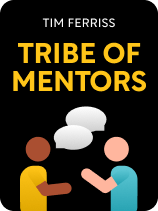

This article is an excerpt from the Shortform book guide to "Tribe of Mentors" by Tim Ferriss. Shortform has the world's best summaries and analyses of books you should be reading.
Like this article? Sign up for a free trial here.
Are you just getting started in your career or contemplating a new one? How can you do your best to head down the right path?
In Tribe of Mentors, Tim Ferriss passes along life and career advice that he received from experts in a variety of fields. Some of the insights cover how to build a career that you’re happy to invest in.
Read on to get several practical tips that will help you carve out a fulfilling career path.
How to Build a Career
In sharing the experts’ advice on how to build a career, we’ll discuss whether or not passion for the work should be your highest priority when searching for a job. Then, we’ll explore how some people advise rejecting the traditional path to success and embracing a more risky lifestyle.
Follow Your Passion
Many of Ferriss’s experts agree that a job you’re excited about is the core of a fulfilling life. Political commentator Tommy Vietor argues that true passion should be your number one priority when looking for a career. Record producer Rick Rubin notes that if you follow your passion, you won’t care whether you find success or not since you’ll be doing something you love.
Design expert Debbie Millman takes this idea further, arguing that if you’re truly pursuing your passion, you’ll have no reason to worry about maintaining a work-life balance. The work itself will feel like all you need in life. Fantasy author Neil Gaiman voices a similar opinion, stating that work is there to center his life and make him feel content when nothing else will.
Counterpoint: Work for Self-Development Before Pursuing Passion
Other experts caution against following your passion, at least at the beginning of your career. Instead, they recommend taking whatever opportunities offer you the most valuable skills and learning experiences. Wired founder Kevin Kelly argues that if you focus on improving your skills, you’ll become valuable enough to pick and choose the opportunities that interest you the most, which lets you live whatever fulfilling life you want. BitTorrent creator Bram Cohen notes that his choice to wait to follow his passion—instead building up skills while working for others—is what made his first venture successful.
Don’t Follow the Traditional Path to Success
Many people follow the traditional path to success—slowly ascending from one secure job to a slightly better-paying one. However, some of Ferriss’s experts note that constricting yourself to this path may keep you from building a career you’re passionate about.
Actress Richa Chadha notes that the education system typically sets everyone up to follow the same path to success, but this comfortable, low-risk life can be a trap for people with bigger ambitions. If you want to leave a field you’re not excited about, throw yourself into a new pursuit completely; otherwise, it’ll be too tempting to go back to that comfortable life.
Actor and comedian Patton Oswalt describes one way to commit to an untraditional life path: Get used to poor, cheap living conditions so you don’t have anything to lose and the risks necessary for an untraditional career don’t scare you away. Entrepreneur Jérôme Jarre took this idea to the extreme, secretly living out of an office building in New York City for several months until his startup began earning profits.
Cryptocurrency pioneer Nick Szabo also advocates for non-traditional career paths, noting that you shouldn’t feel the need to jump constantly from job to job. Unemployment can give you the space and freedom to devote your full attention to the creative ideas that seem the most promising to you.

———End of Preview———
Like what you just read? Read the rest of the world's best book summary and analysis of Tim Ferriss's "Tribe of Mentors" at Shortform.
Here's what you'll find in our full Tribe of Mentors summary:
- Distilled life advice from over 130 world-class experts in various fields
- How to navigate non-traditional career paths, appreciate failure, and more
- Why you should allow a small amount of measured chaos in your schedule






